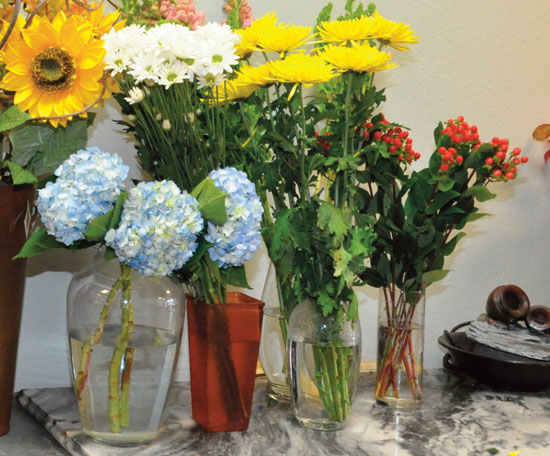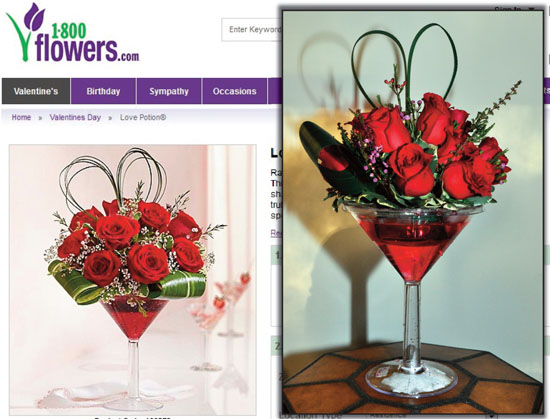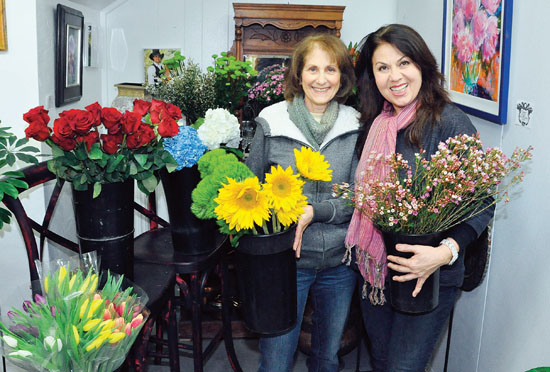
| ||||||
"You're taking your chances," said Neshe Ganch, owner of Floral Arts in Lafayette. "When you call one of those 800 numbers, you may not be calling a flower shop." You may be dealing with a call center, which charges service, handling, shipping or convenience fees to forward your order to a local florist. And you often have no idea whom you are dealing with.
"We call them sending florists," said Arlene Kahn, owner of King Florist and Gifts in Moraga. "They're order takers, and they are not necessarily florists. They take your order, then they come to a florist, asking it to fill the order for more than they will pay to do it. If the florist turns them down, they call the customer and say they can't fill the order." That would not be a pleasant phone call for a customer to receive on Feb. 14.
Many of the online companies present themselves as full-service florists, posting an extensive list of beautiful floral displays. "No florist could possibly have all of those arrangements," said Ganch. "They're wire services, with employees and overhead. They cannot respond to your special requests. The quality of the flowers you get may not match what is shown in those photos." Kahn added that if the online company insists that she deliver the arrangement for free, she will not do it.
Los Angeles-based JustFlowers.com, an online broker, and Teleflora, a delivery service out of Los Angeles, did not return calls or emails seeking comment.
So, you may not be talking with a florist when you order flowers by phone, and you may not be getting what you think you are getting, or when you expect it. That does not sound like the basis for a successful business model. Jennifer Sparks, vice president of marketing for the Society of American Florists, the Alexandria, Va.-based industry trade association, explained how to stay a step ahead of the rogue operators.
"When you ask about scams, the main concern is the issue of deceptive listings where companies list themselves under a variety of fictitious florist names with a local phone number," she said. It is unlawful in California to advertise a fictitious shop name that includes, say, an Orinda geographic reference, or a phone number that consumers perceive as being local but is forwarded to a business in another state.
But not only national companies operate this way. "Many are also local florists who decided to become aggressive by reaching consumers on a nationwide level through toll-free numbers and the Internet," said Sparks.
Then what can you do to avoid being taken?
"Deal only with shops that list a street address with their phone number," she said. "When you call the florist, ask for directions to the shop. If they hesitate, consider that a red flag. And ask the florist to itemize charges. Most charge a delivery fee and sales tax in the state where the order is being taken, in addition to the price of the arrangement."
The one suggestion that all three agreed upon: deal directly with a local florist, with a local business address.
"A lot of the time, consumers want to support a local floral business but don't know where to go," said Sparks. "Florists need to focus on catering to the local customer to make sure they know the shop is there to serve them."
"You can question us about the details of your order," said Ganch. You know you are talking to a real, local person. You know us.
"And you can hold us accountable."


Reach the reporter at:
